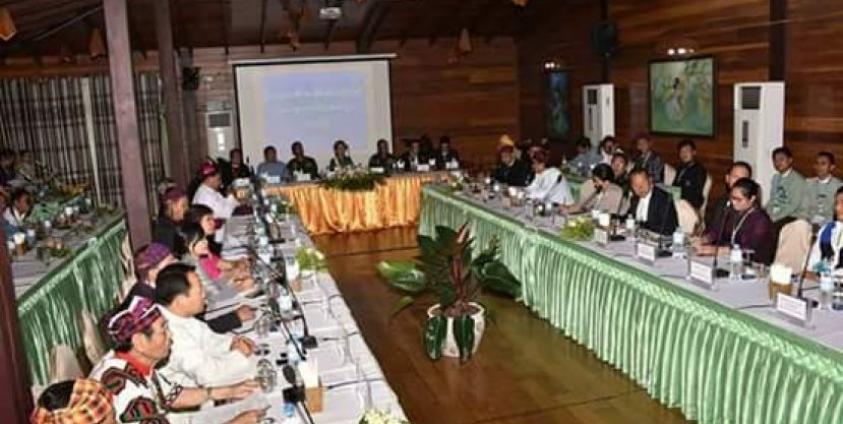The federal Union could unravel if the 1947 Panglong Agreement is not carefully heeded, the Kachin National Consultative Assembly warned this week.
The assembly has found itself in a spat with State Counsellor Daw Aung San Suu Kyi after a March 28 meeting where she cautioned against overemphasizing the 70-year-old accord. The Panglong Agreement, drawn up by Aung San Suu Kyi’s father Bogyoke Aung San, and Chin, Shan and Kachin leaders, outlines a shared vision for a federal Union, guaranteeing the ethnic groups autonomy in exchange for their help in the fight for independence.
According to the Kachin National Consultative Assembly, the state counsellor advised sticking to the Panglong Agreement in spirit, but not necessarily to the letter since it was not inclusive of all ethnic groups.
On April 3, the Kachin National Consultative Assembly shot back with a statement saying the Union of Burma only exists because of the 1947 agreement, which entitles all ethnic groups to participate in discussions about the federal Union.
“If we were to forget and turn a blind eye to our history, we believe this would lead us to the situation that existed before the signing of the Panglong Agreement,” said Labang Gam Awng, secretary of the Kachin National Consultative Assembly.
“We cannot erase the history of what Bogyoke Aung San and the ethnic Shan, Chin, and Kachin leaders negotiated in striving for the emergence of the Union of Burma,” he added.
The Panglong dispute has landed the state counsellor in hot water with the Shan Nationalities League for Democracy (SNLD) as well.
SNLD joint secretary Sai Kyaw Nyunt said that people who insist Mon, Karen, and Arakan people are not included in the provisions of the Panglong Agreement have not clearly read and understood the document.
“Mon, Karen and Arakan people were included under Burma Proper because they lost in the war with the Burmese people … all ethnic groups under Burma Proper were representation by Bogyoke Aung San’s government and leaders at the time,” he said.
“We believe the Panglong Agreement encompasses everyone because the agreement addresses the full ‘federal Union of Burma’,” he added.
Sai Kyaw Nyunt said that ethnic groups, especially those that signed the historic accord, will feel disrespected and dishonored if gains made under the Panglong Agreement and its blueprint for a federal Union are overlooked or neglected.
Translated by Thida Linn
Edited by Laignee Barron







